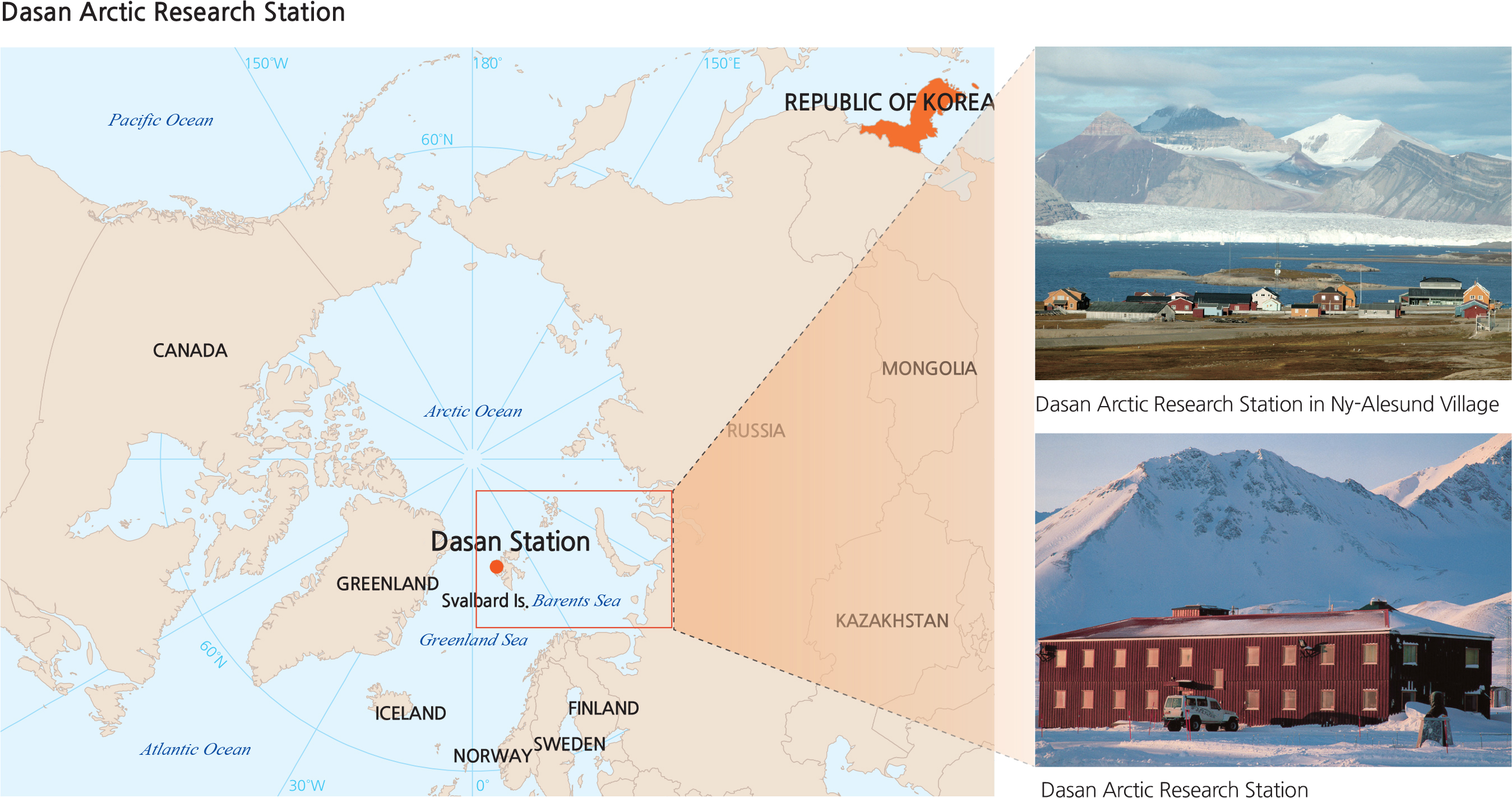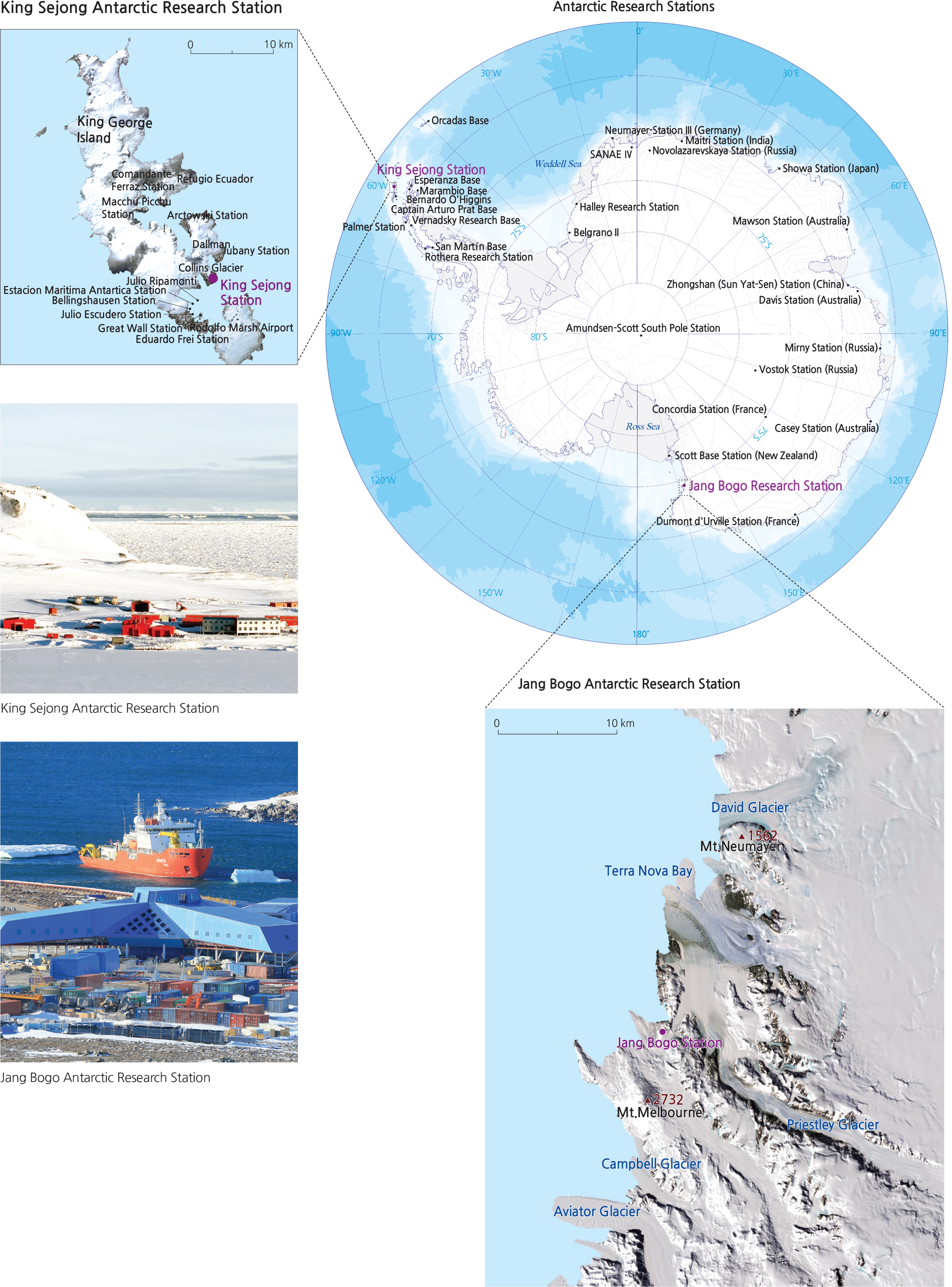for Children
Conducting scientific research expeditions into oceanic and polar areas well beyond its borders represents an important step in Korea’s contribution to the global scientific community. Korea, with its advanced technological capabilities, has a strong commitment to research contributions that deal with such global issues as climate change and the degradation of the global environment. Its continued operation of research stations worldwide is a testament to this commitment.
Korea operates two research stations in Antarctica: the King Sejong Station and Jang Bogo Station. The research agenda at King Sejong Station primarily focuses on climate change and polar environments such as atmospheric conditions in the Antarctic region, its geologic features, waters, and organisms. With the construction of the Jang Bogo Station in 2014 Korea has extended the scope of research to include such additional fields as paleoclimatology and paleoenvironments along with expeditions for meteorites.
|


